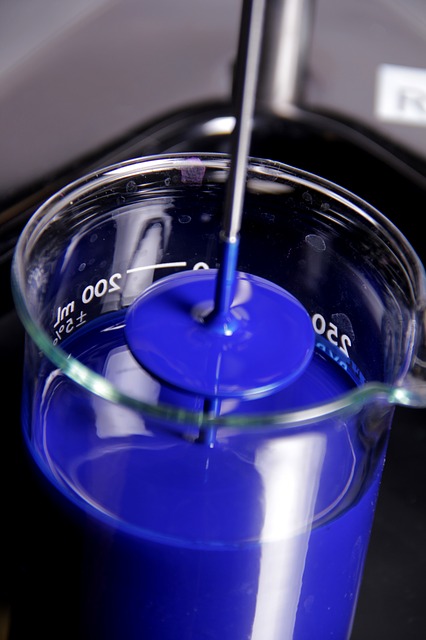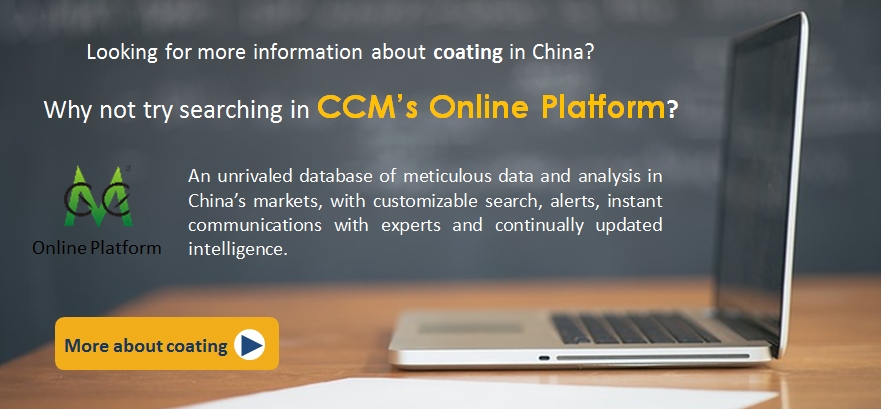China’s coating industry has witnessed several price increases recently after
manufacturers have suffered under high pressure for a long time. The price
increases reflect increasing costs in this industry and are very likely to
continue in the near future.

Several
Chinese companies have already announced first rounds of price rises in
February and March 2017. The first one was Jotun Coatings, who announced the
price rise on February 6. The reasons for the price rise by 26% to 40% for ten
types of industrial coatings was explained by the company with rising prices of
raw materials like TiO2. The next announcement took place on February 20 by
SKSHU Paint. However, the price of the company’s emulsion paint and wood paint
only was increased by 5% - 9.8%.
On
first of March, two companies have announced further price rises. Guangdong
Badeshi revealed price rises, due to the increasing costs of raw materials,
while Carpoly Chemical stated the price for its home decoration coatings would
not rise larger than 12%.
According
to market intelligence firm CCM, the price hikes for coating are due to two
main drivers. First of all, the coatings industry was fighting under huge
pressure in the last year, facing elevating costs of raw materials like TiO2,
higher transportation costs and also restrictions and costly requirements for
better environmental protection measurements. Secondly, the month of March is
the natural beginning for a higher demand for coatings, which enables
manufacturers to raise their prices in an acceptable manner.

Increasing costs
CCM
has specified the different type of factors, that are mainly due to the rising
costs for the coatings industry in China.
The
main cost driver for the coating manufacturers in China are the steadily
increasing prices for raw materials. Some of the upstream products, like
aromatics, resin, and TiO2 have shown price increases in 2016 by 20% compared
to the previous year. The price rises have been announced several times
throughout the year, and are still continue to rising in 2017. This adds a lot
of pressure to China’s coatings manufacturers, which will be the leading cause
of further price increases in the near future.
The
next main factor is increasing costs of transportation as well as stricter
regulations for hazardous chemical substances. Costs increase up to 35% could
be seen in those. Since about 80% of hazardous chemicals in China are being
transported on the road, the government has increased the regulations to
prevent accidents in this transportation method more effectively. Some
measurements are prohibited roads for vehicles with hazardous chemicals or
limiting the amount of allowed transportation.
Finally,
since several cities in China have witnessed severe pollution problems in 2016,
the government has ever since then increased regulations for environmental
protection. This includes production limitations in heavy polluted times as
well as costly implementations of new solid waste disposals. Due to the fact,
that the environmental inspections will go on in 2017, further cost increases
for Chinese manufacturers are very likely.
Looking
at all these factors, the price rises of China’s coatings industry is widely
accepted in the ranks of customers. According to CCM, the first announcements
are likely just the beginning of an upward price trend, which will surely
spread to other manufacturers as well.
About CCM
CCM
is the leading market intelligence provider for China’s agriculture, chemicals,
food & ingredients and life science markets.
Do
you want to find out more about the coatings market in China? Try our Newsletters and Industrial Reports or join our professional online platform today and get insights in Reports, Newsletter, and Market Data at one place.
For
more trade information of coating products, including Import and Export
analysis as well as Manufacturer to Buyer Tracking, contact our experts in trade analysis to get your answers today.
Looking
for a convenient way to get comprehensive and actual information as well as a
platform to discuss with peers about the latest chemicals industry and market
trends? Simply subscribe to our YouTube Channel.